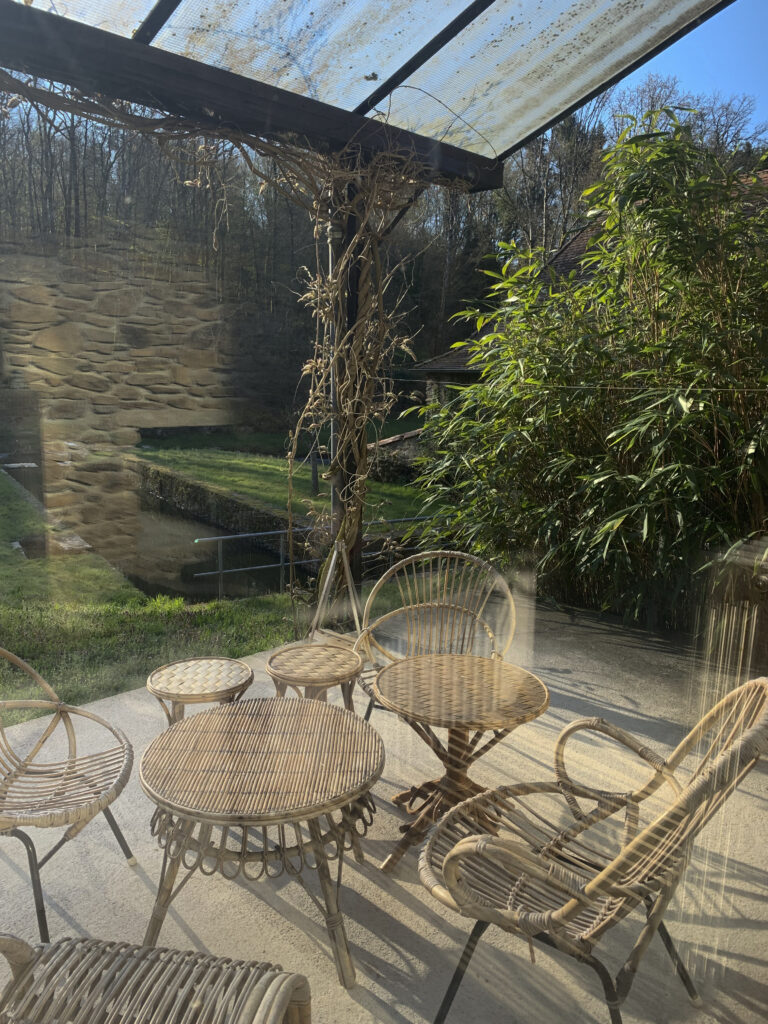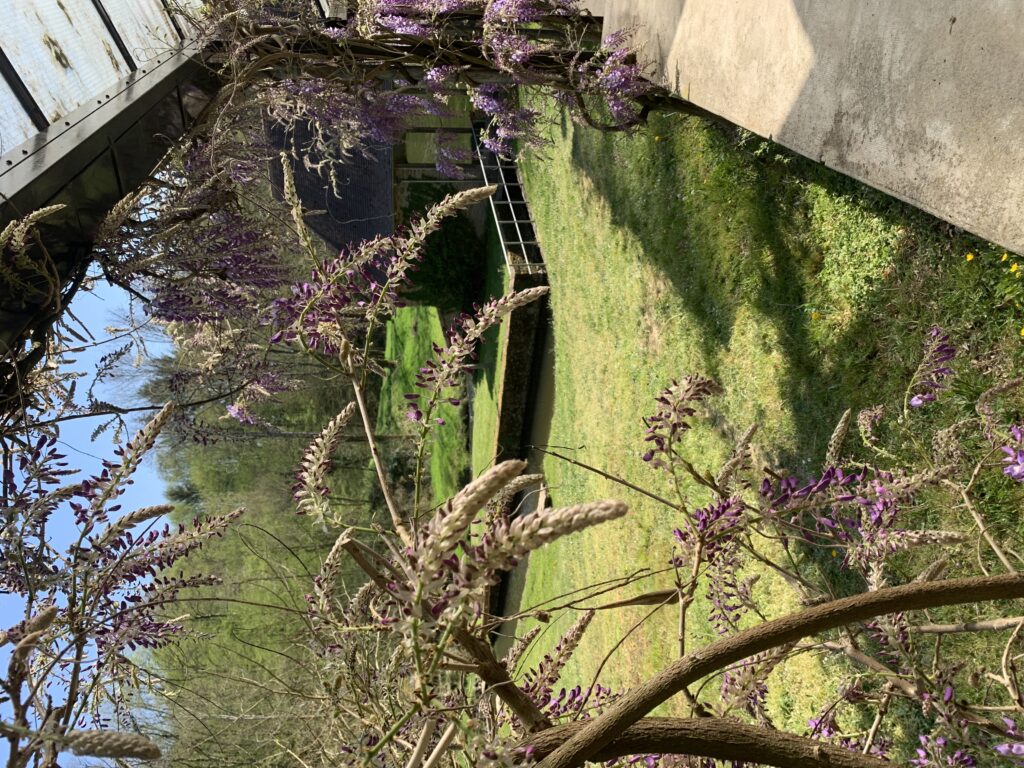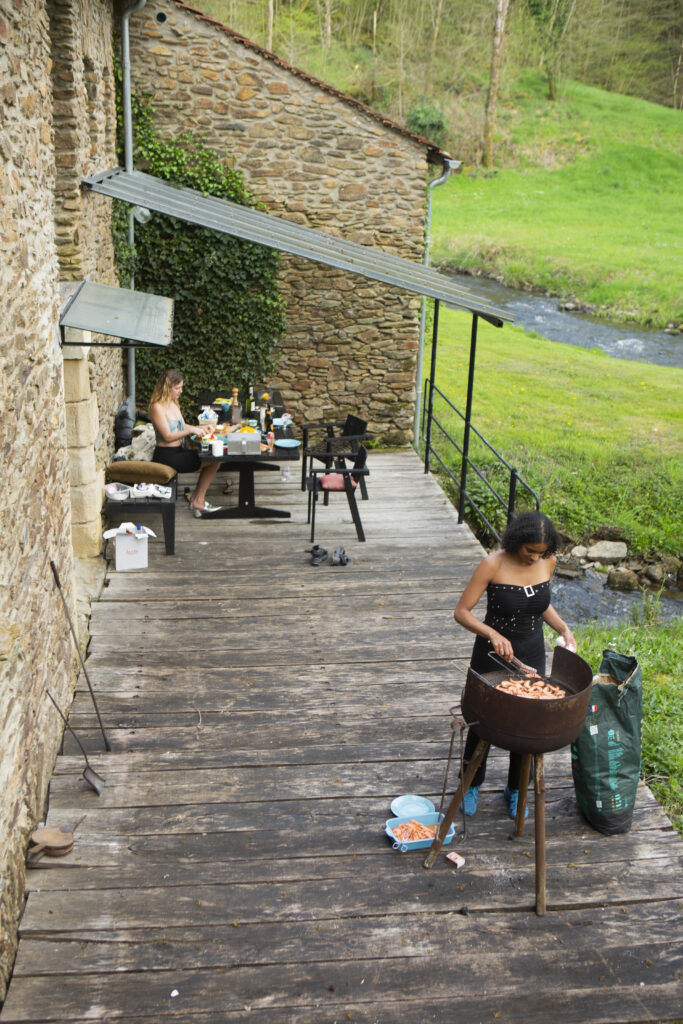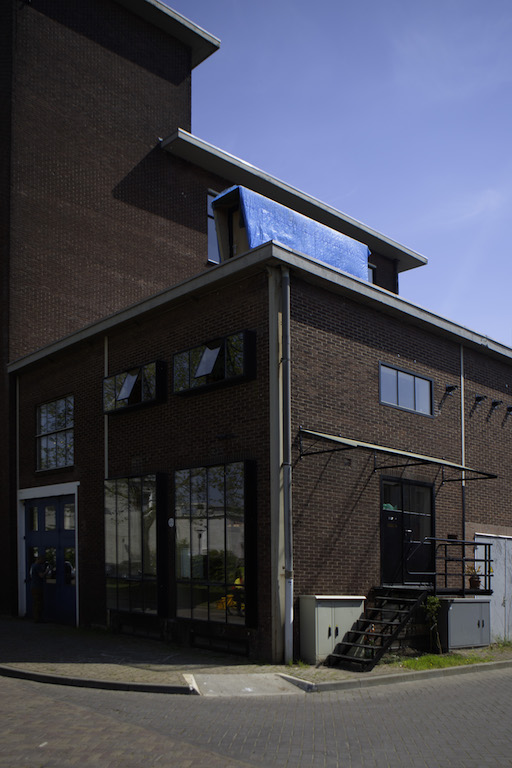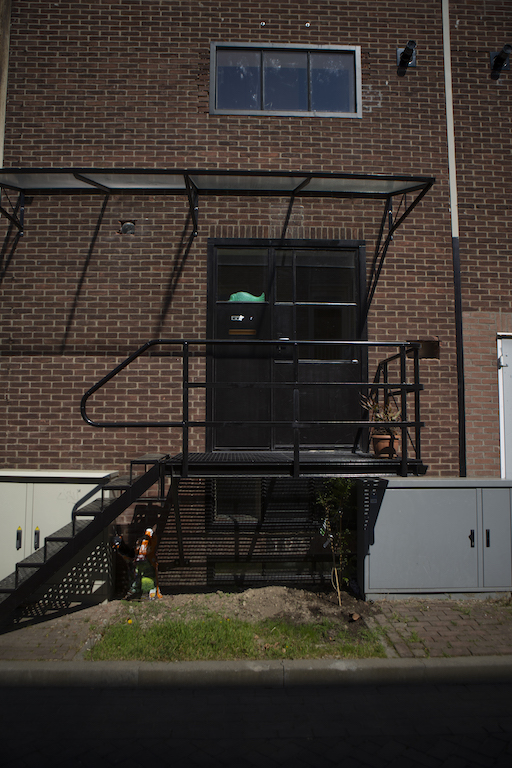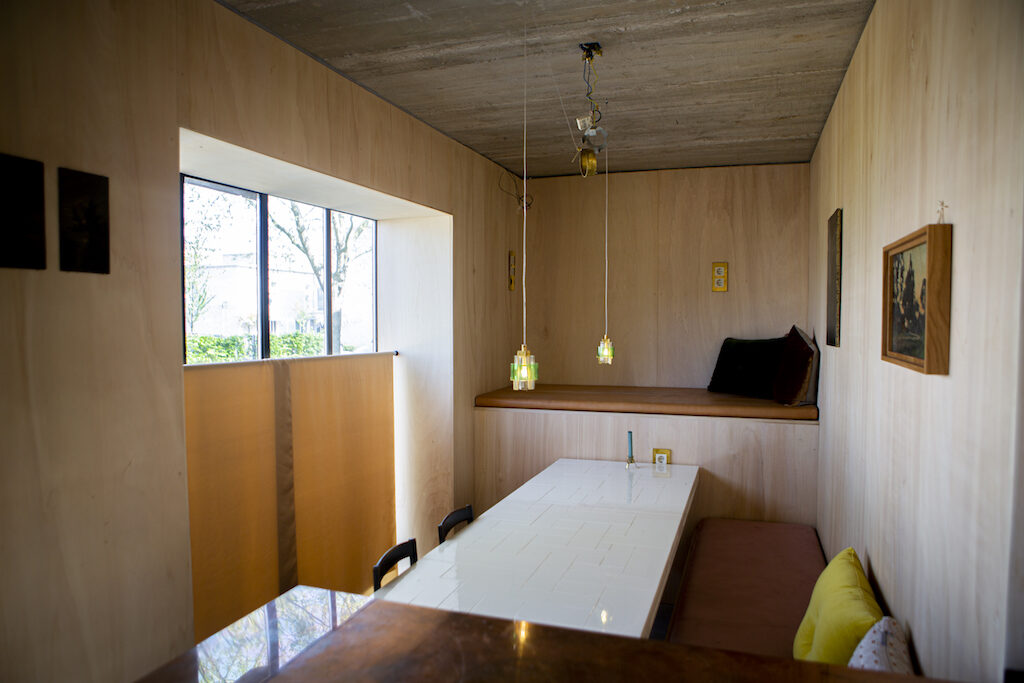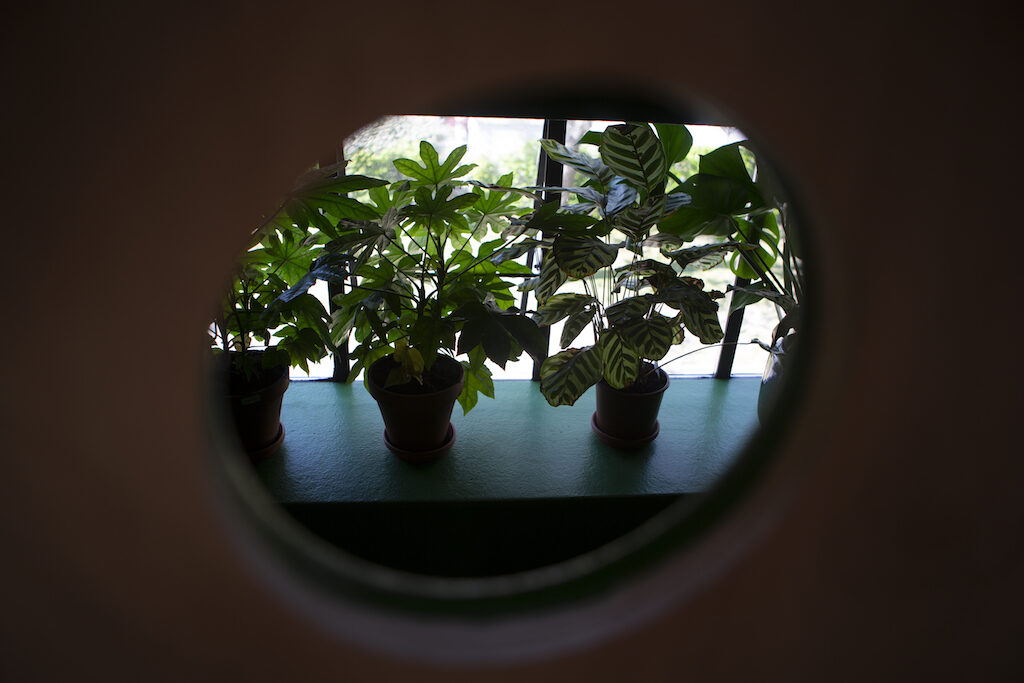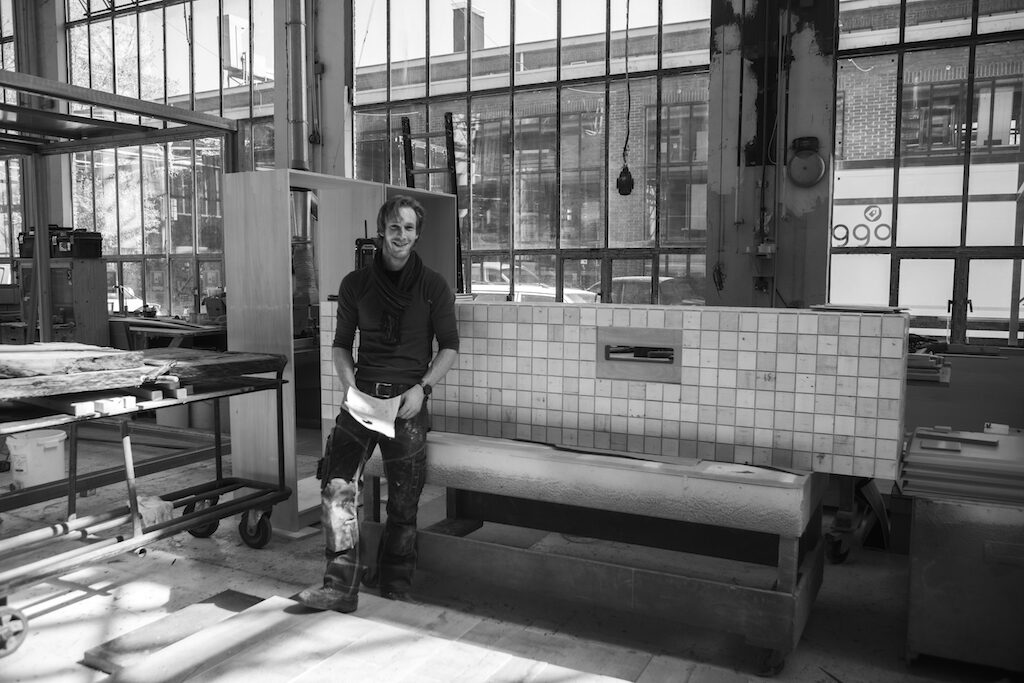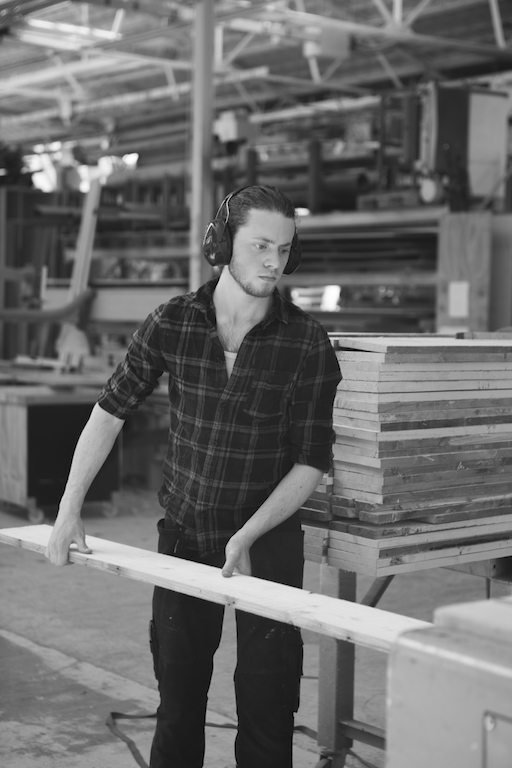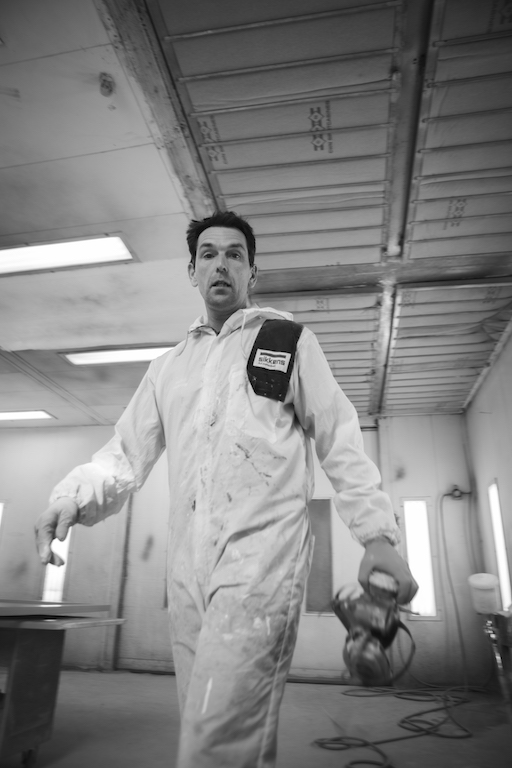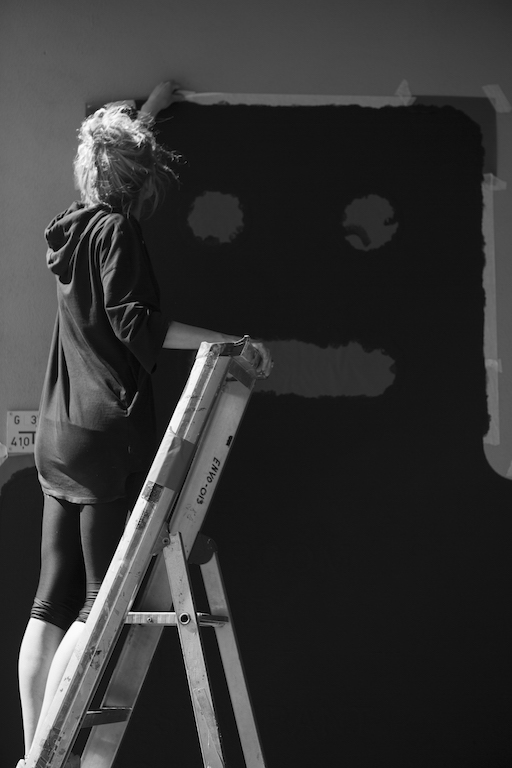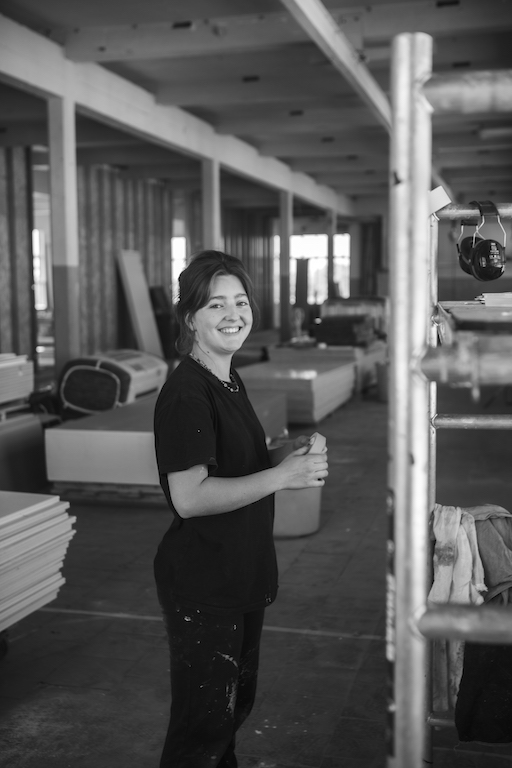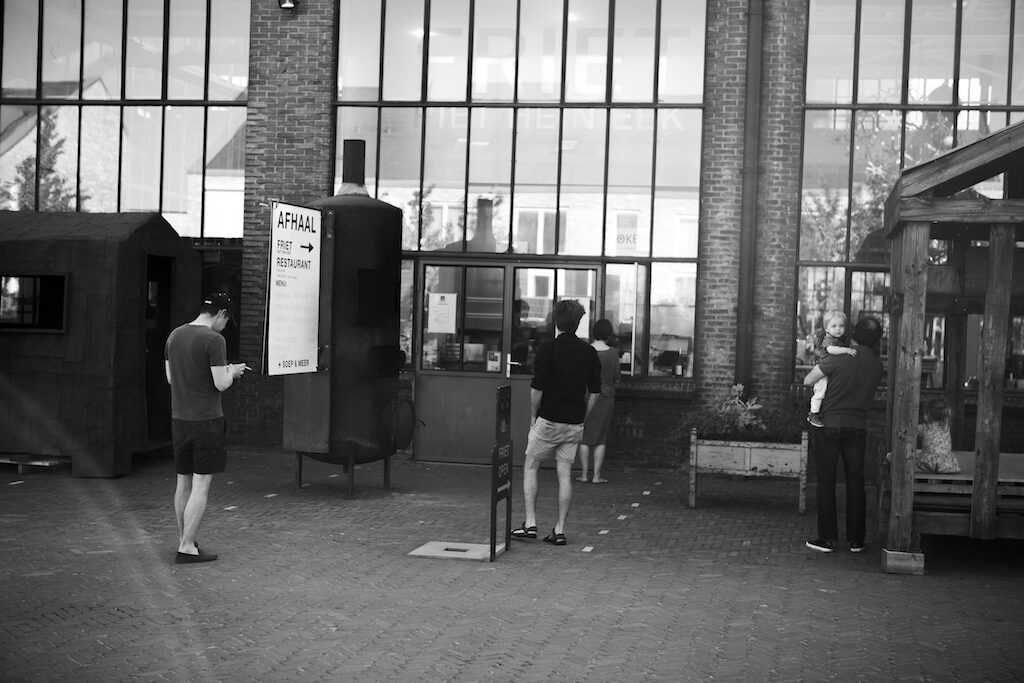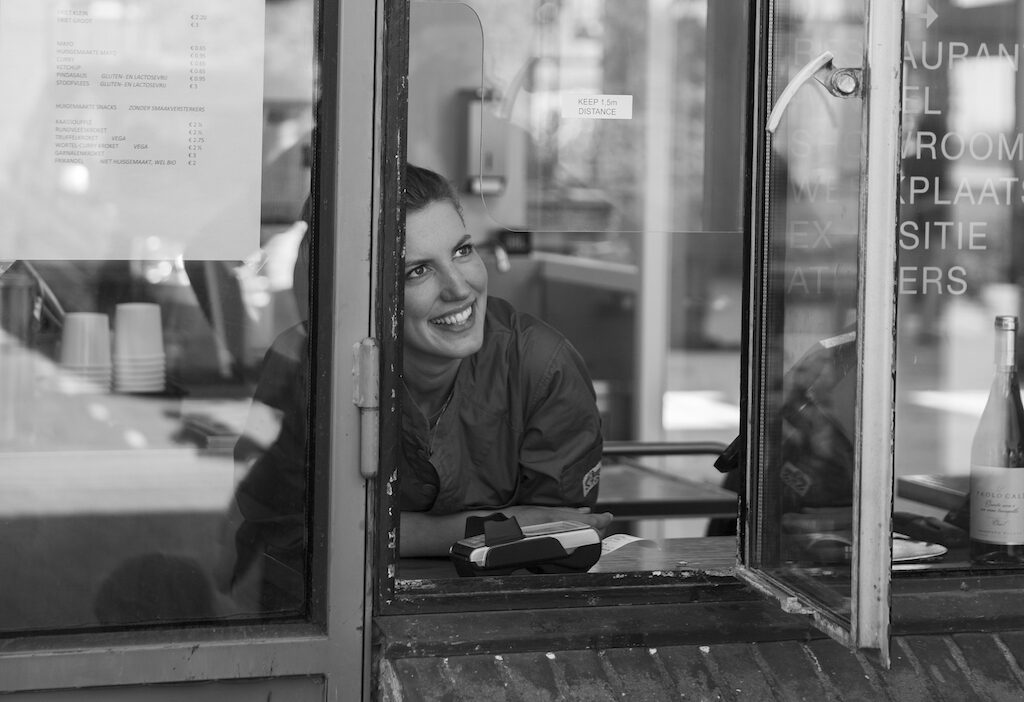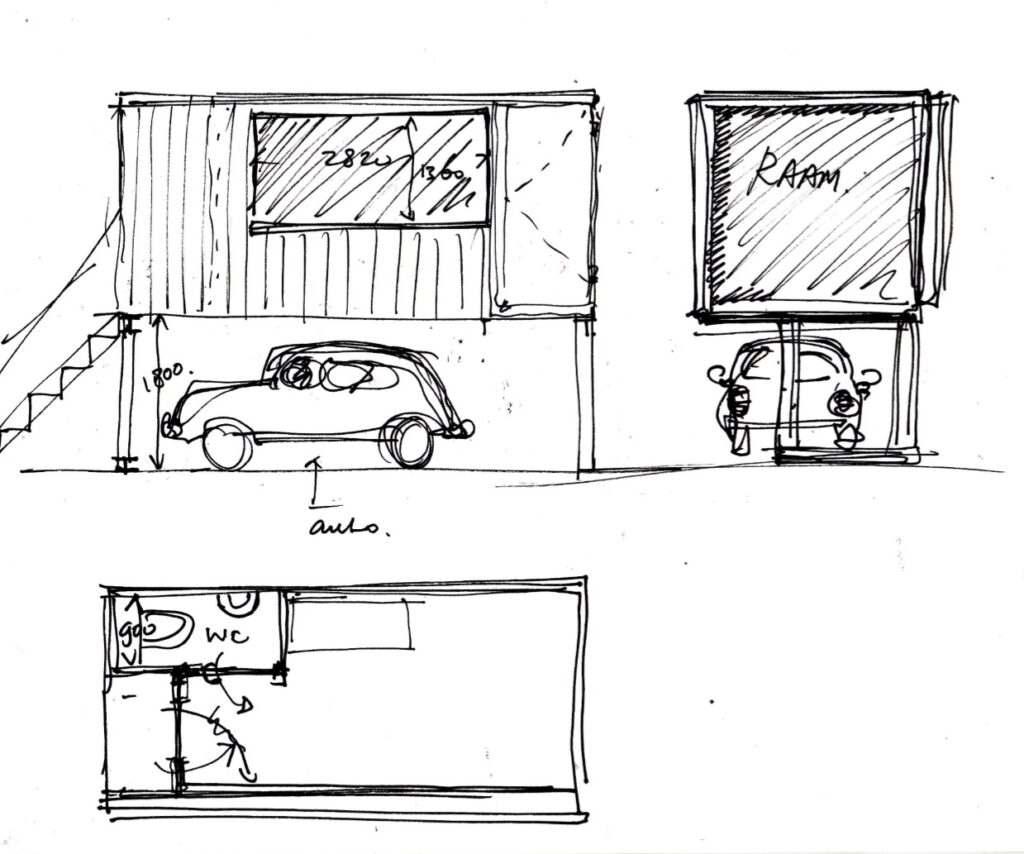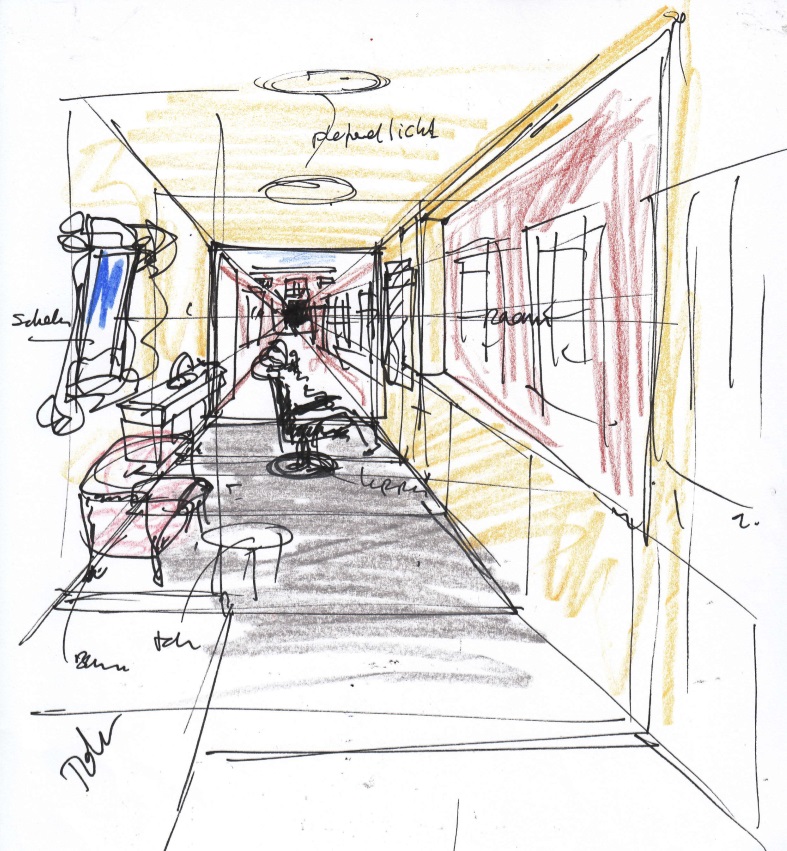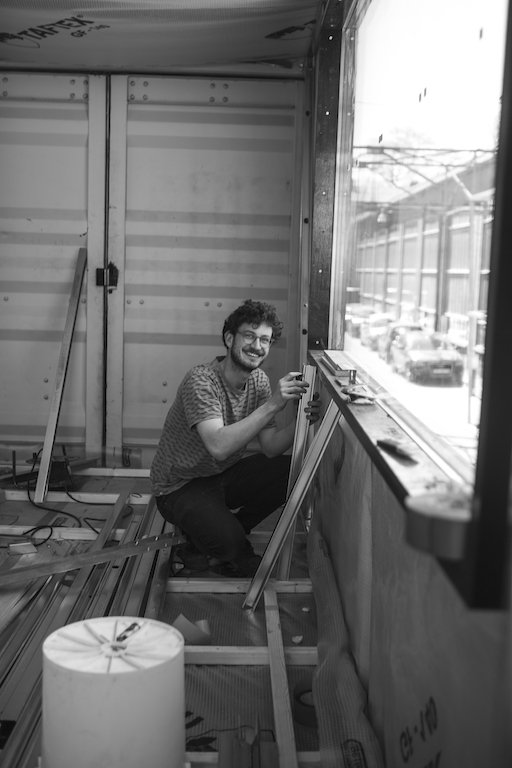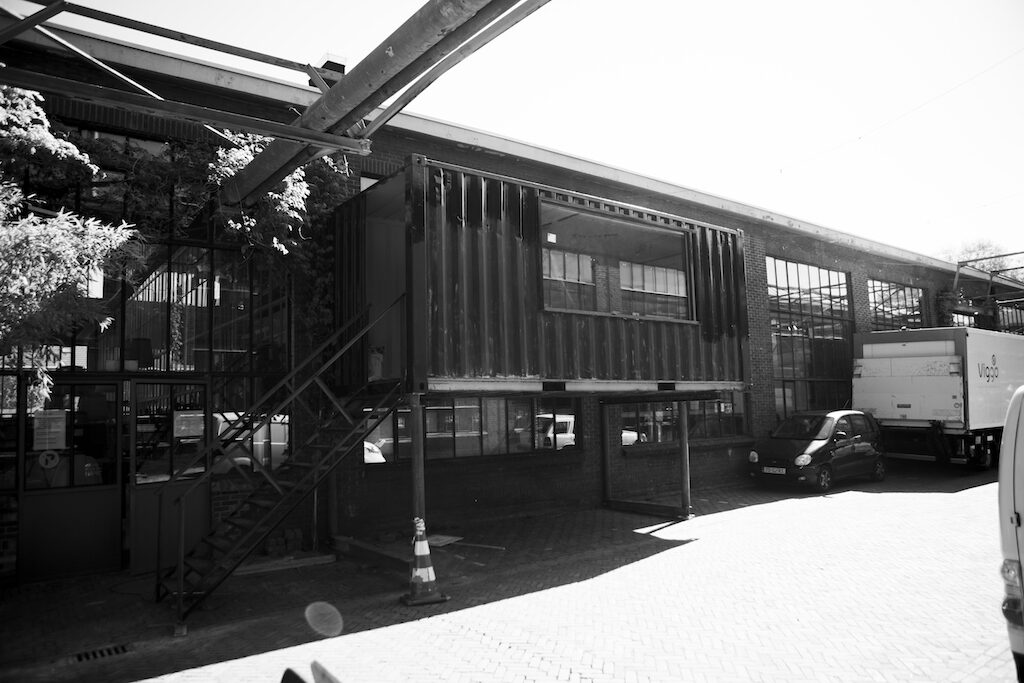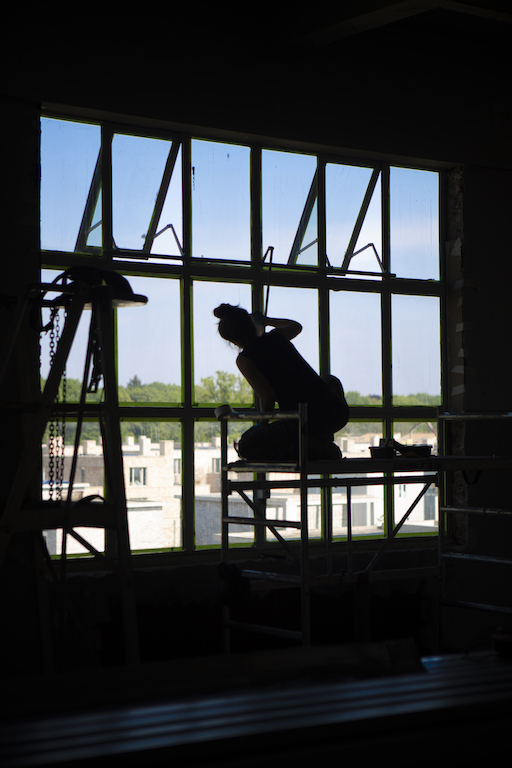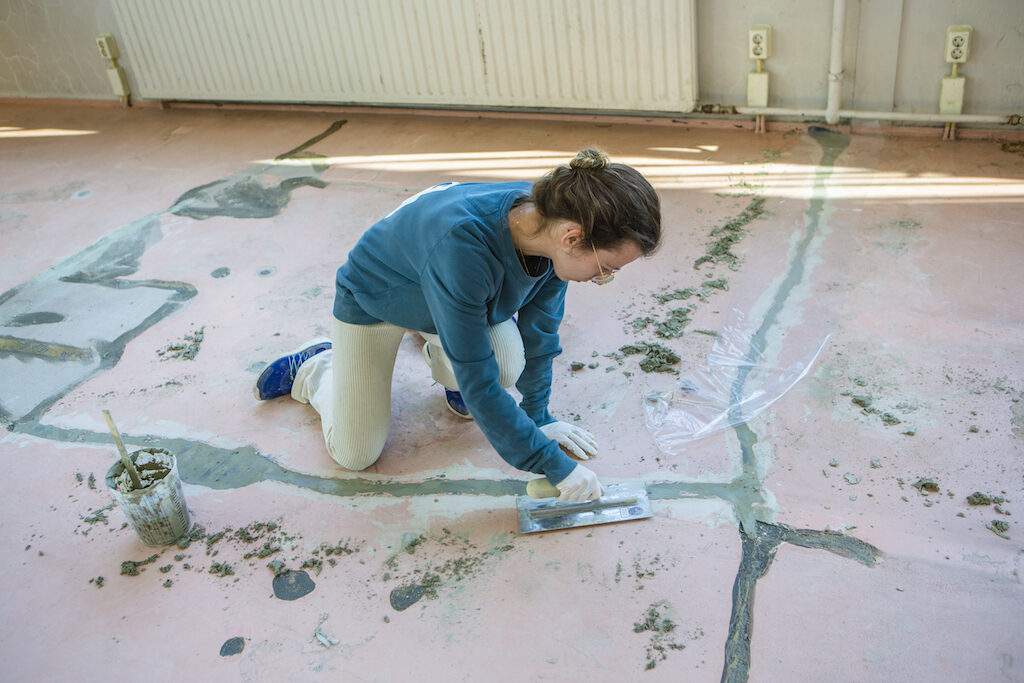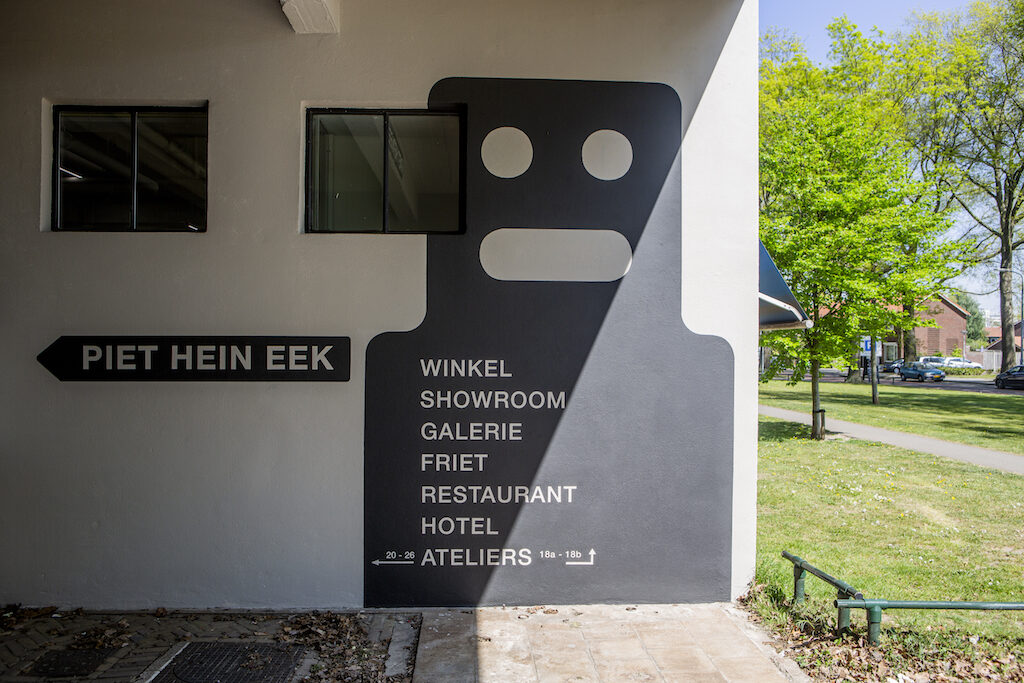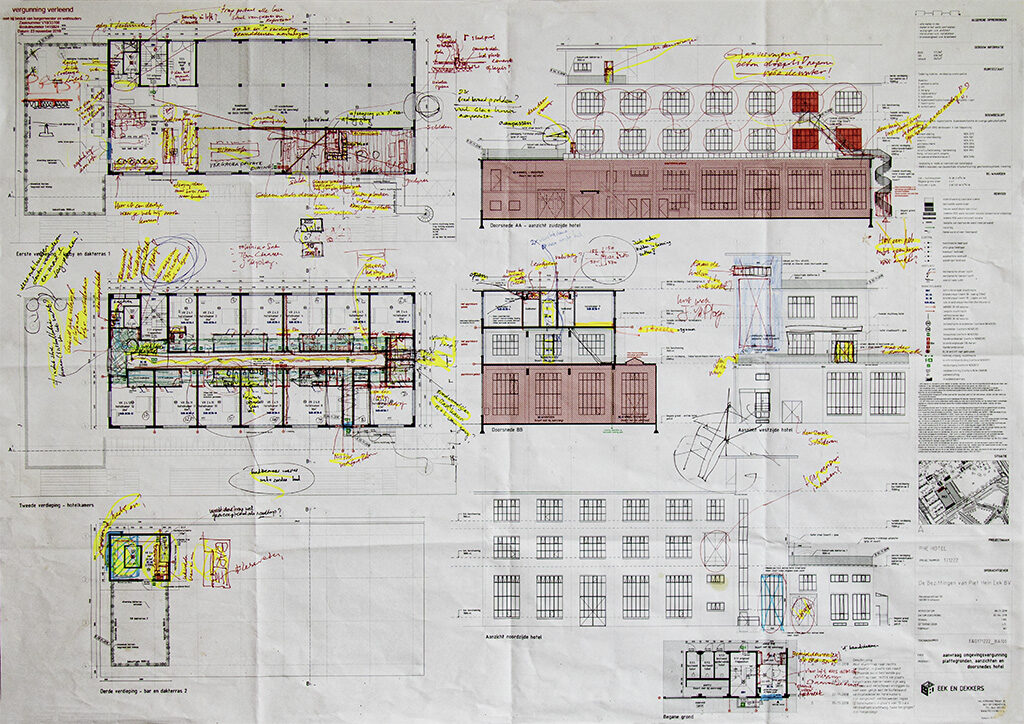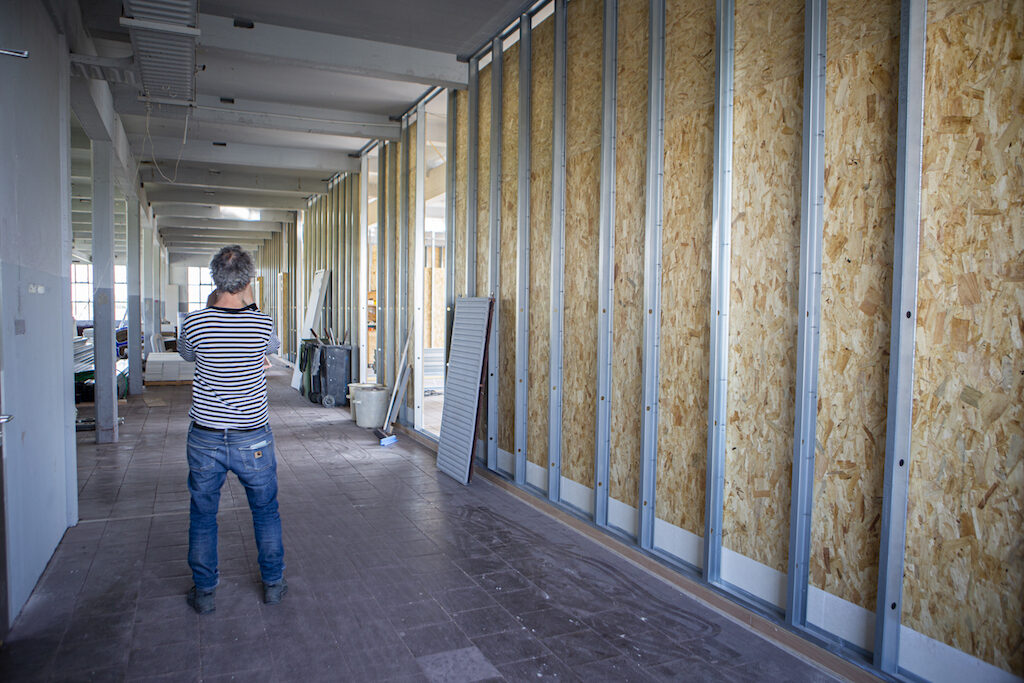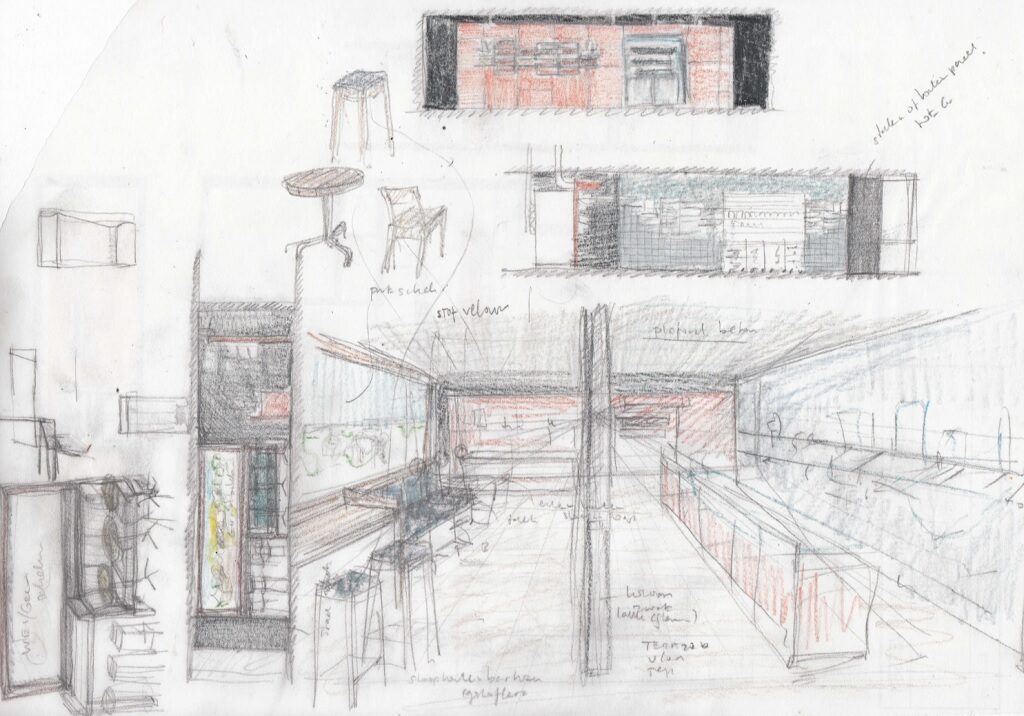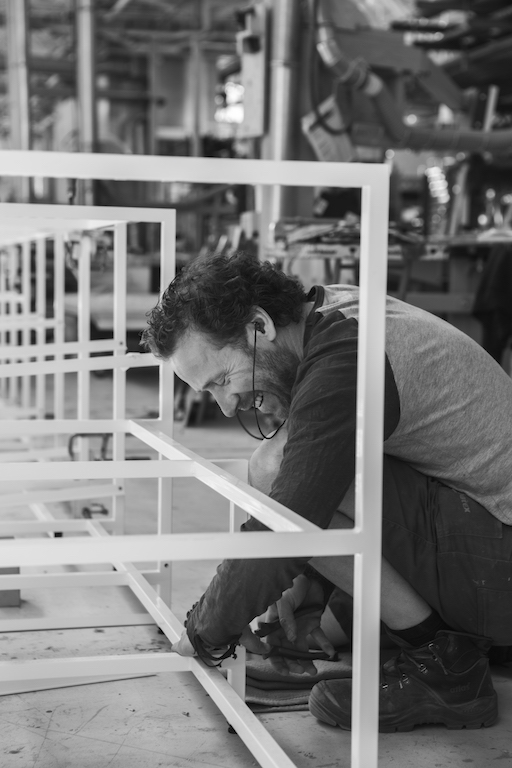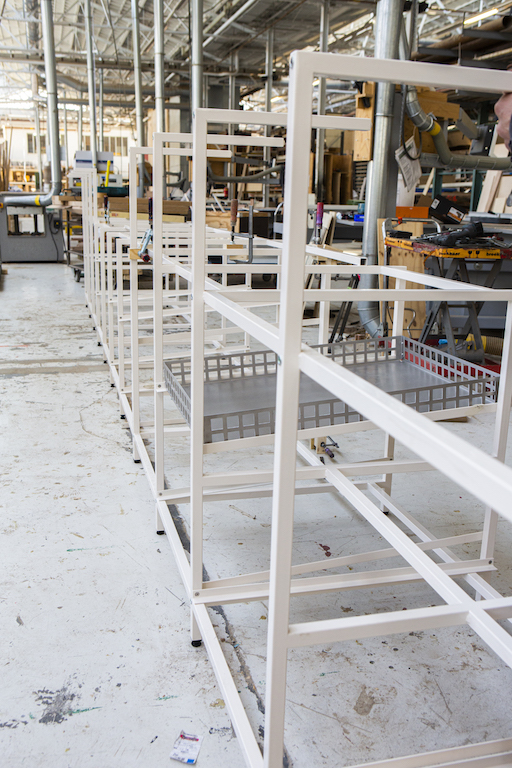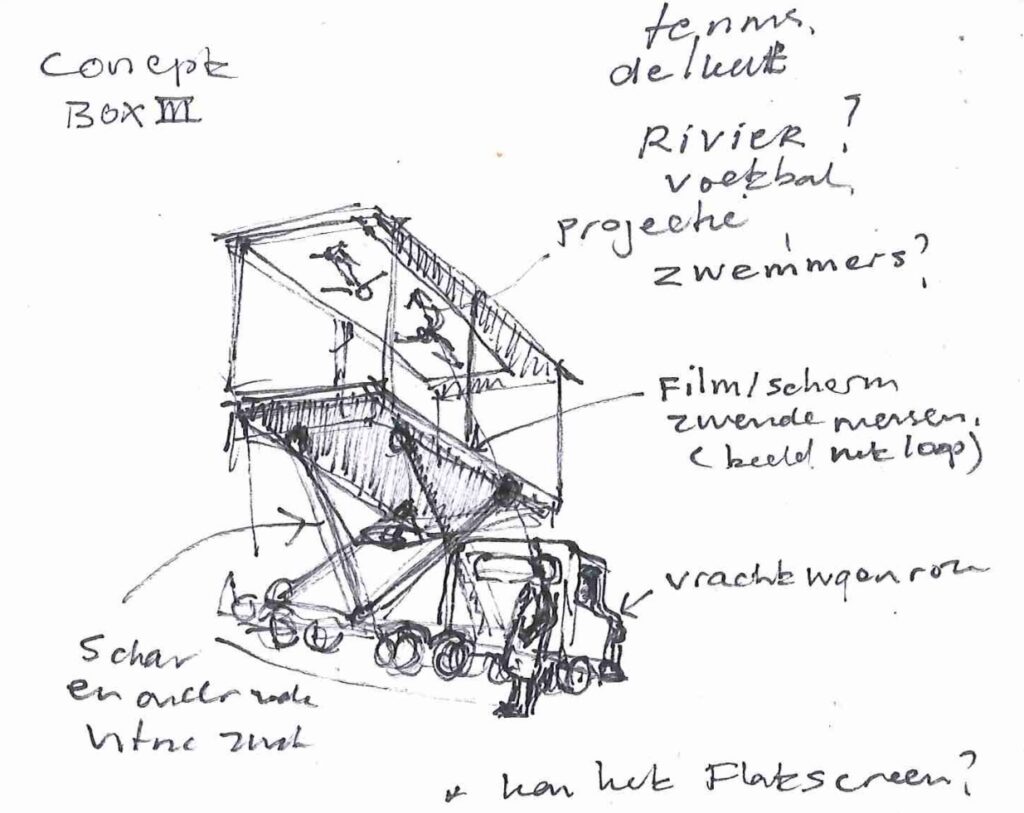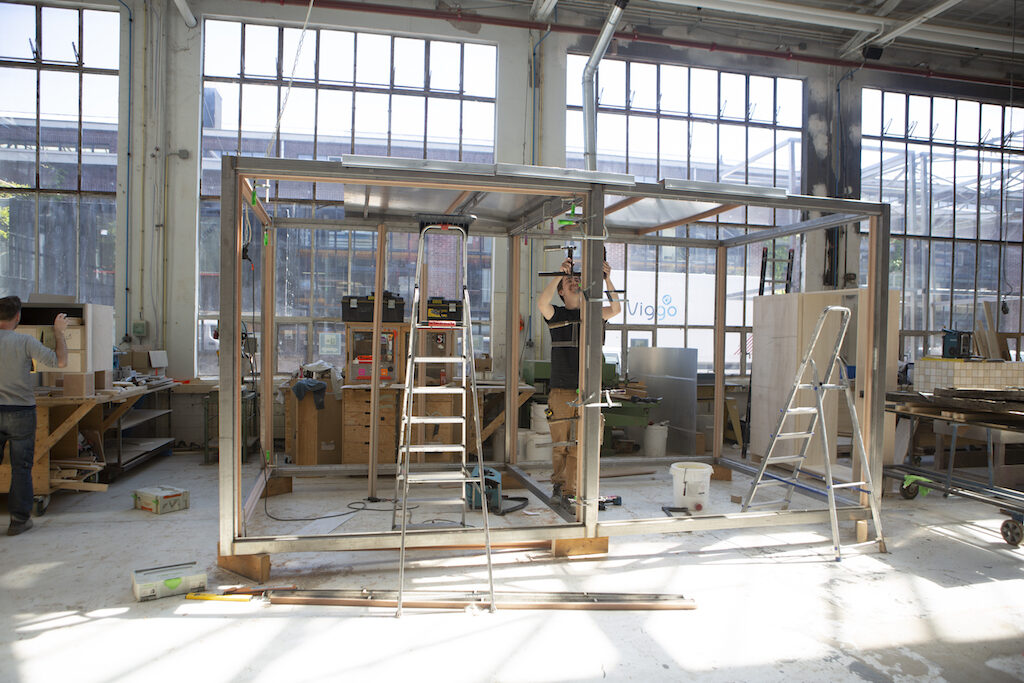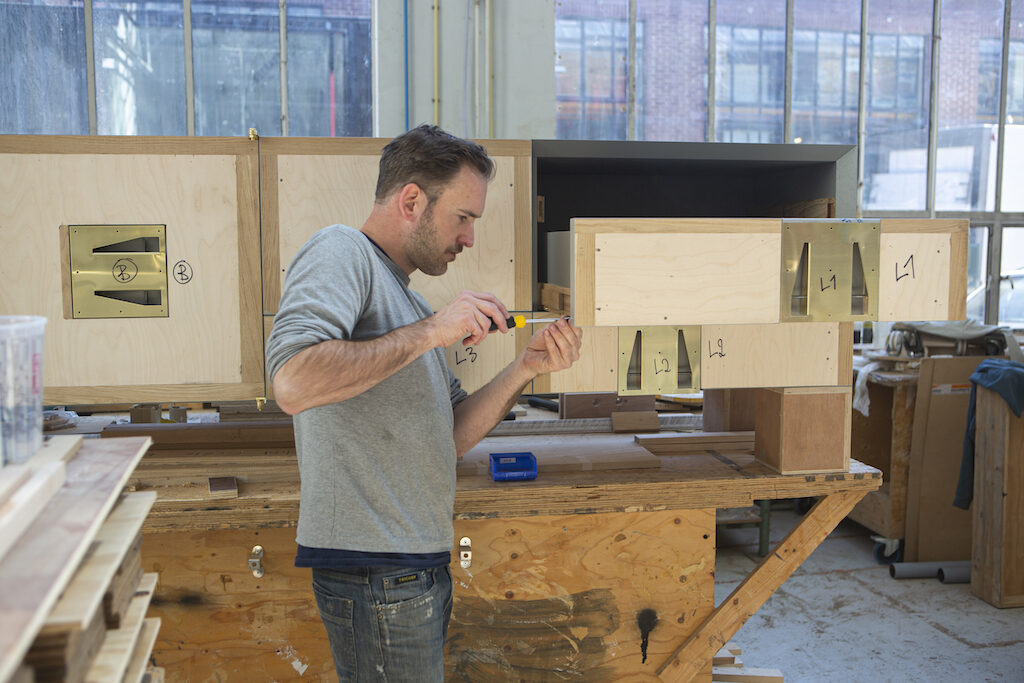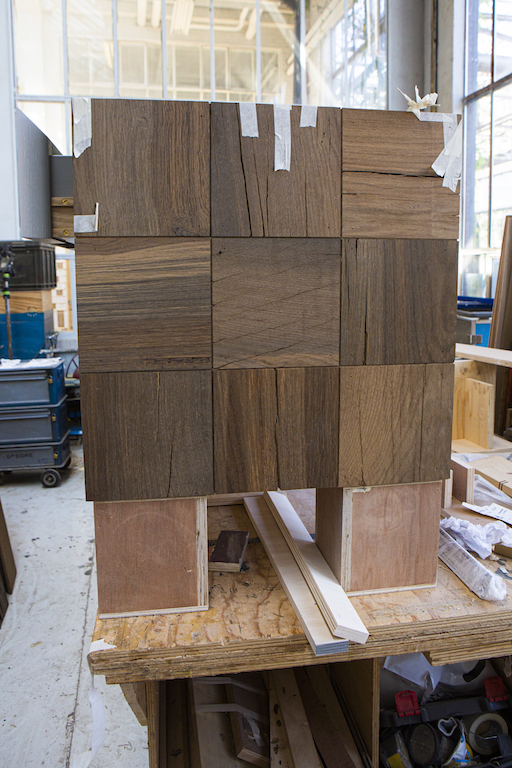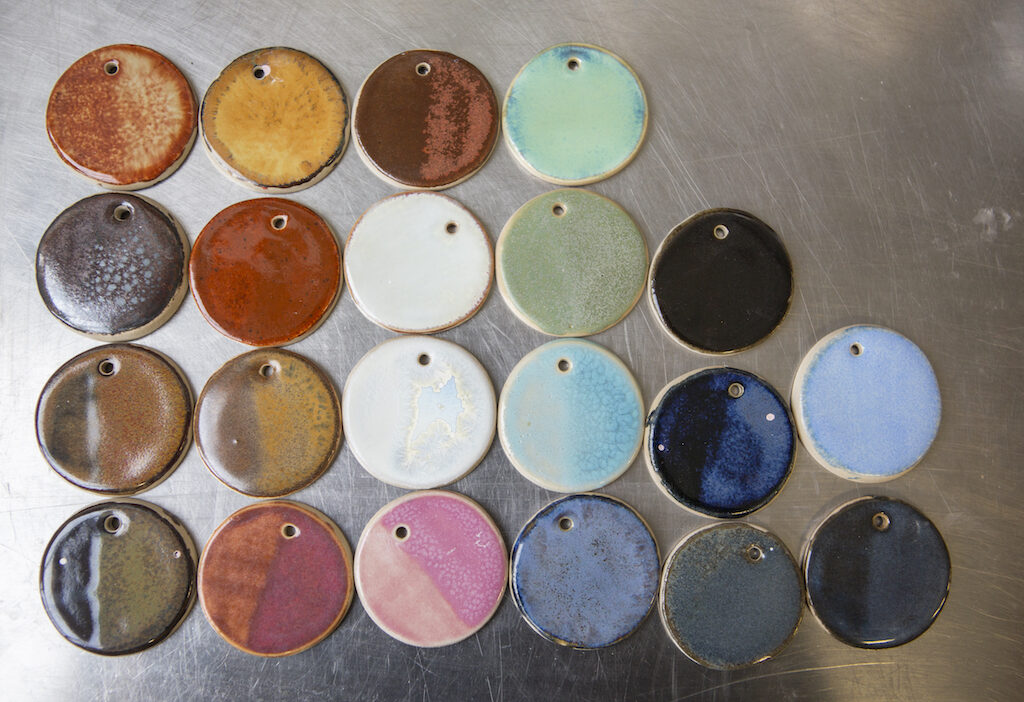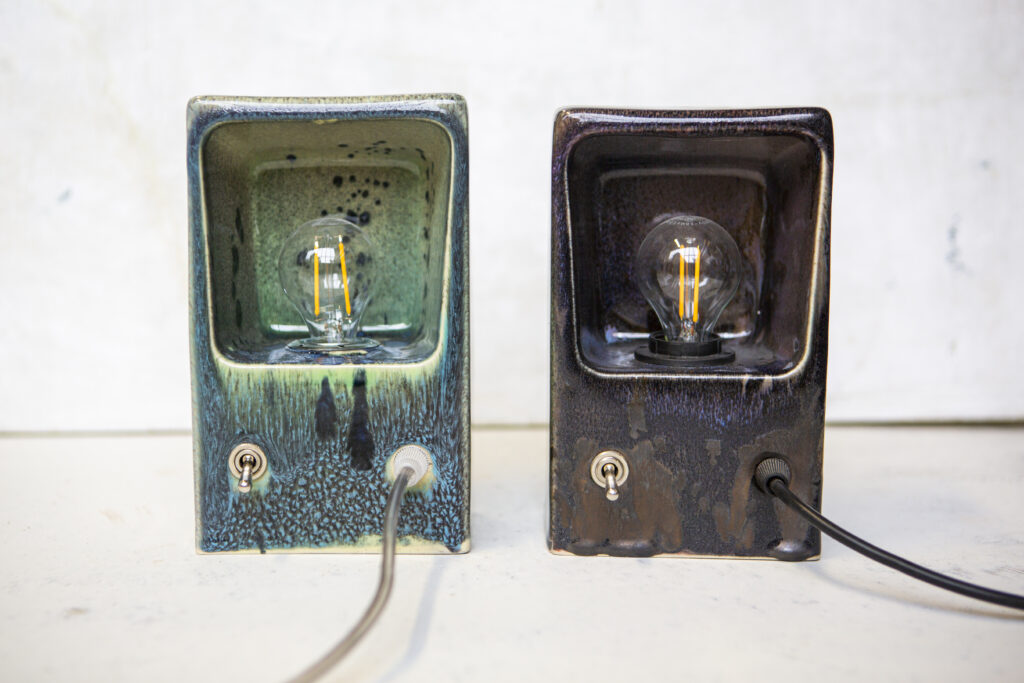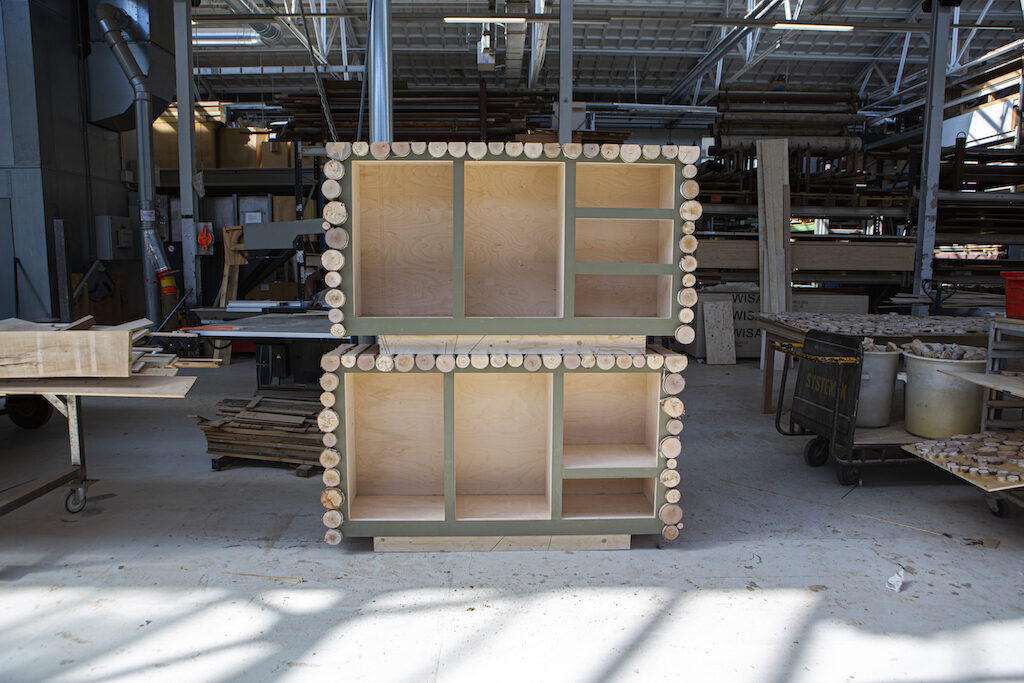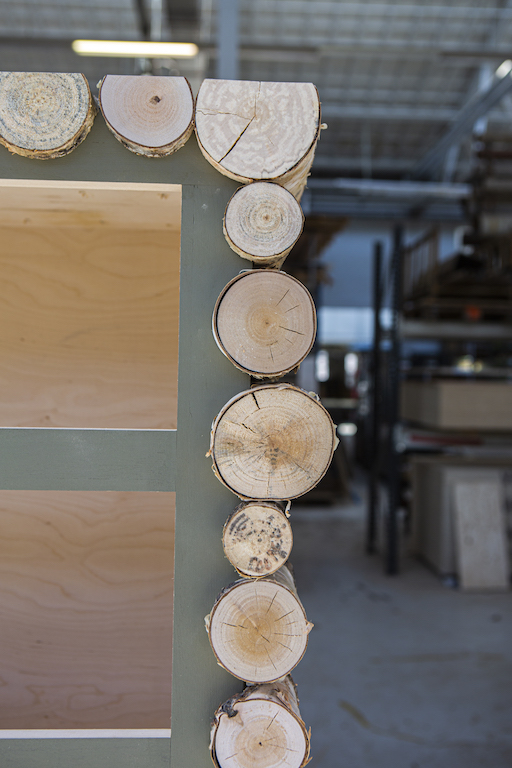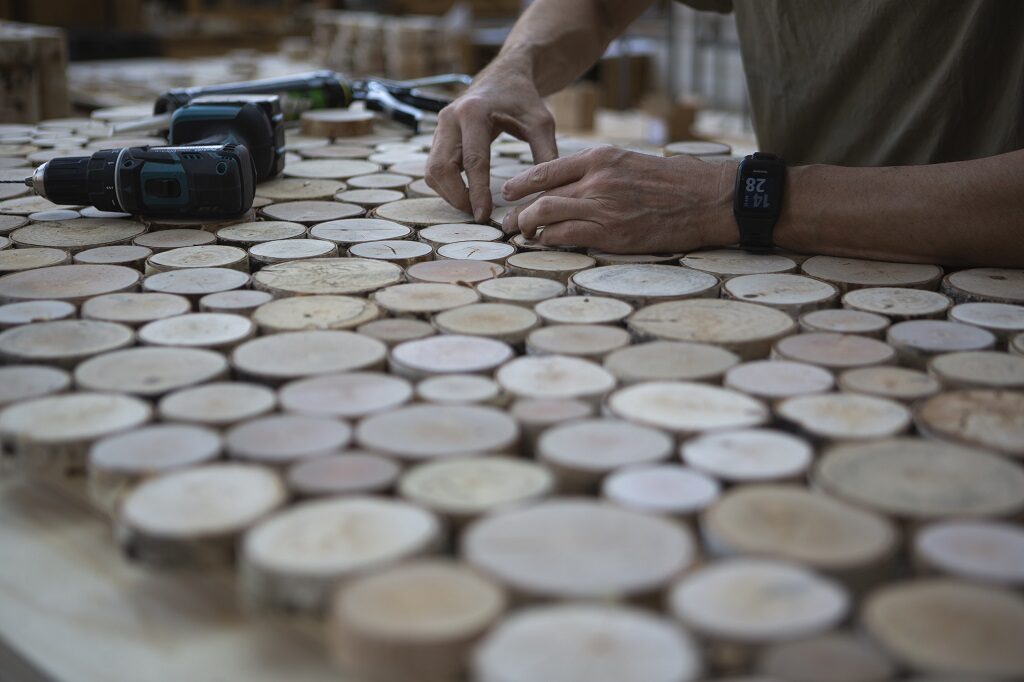28-04-2020
Apologies in advance
I am well aware that I see this crisis differently and handle it differently to others, and also that it affects me to a lesser degree than other people who no longer have any work or have loved ones who are sick. So, it is easy for me to talk from the side-lines. Yet I have tried to put into words how I see things and how I deal with them. Because I am quite critical about how we are all reacting to this but mainly to share all the beautiful and fun things going on around me, and that these are not the result of how fantastic things are or because of our bright prospects. I think the items can all be read separately. Should there be topics among them where my comments seem unsophisticated, too direct or clumsy, I would like to apologise in advance.
The beginning
I remember, when our fear for the Coronavirus began to take shape, that I somewhat reluctantly thought; perhaps we should take some kind of action. On the Friday afternoon I asked Nard and Joost, in the presence of a few others, whether they thought we should do something, like bringing our own packed lunches instead of making our sandwiches together at one long table. I specifically asked Nard and Joost this because I suspected that they would think it was all ridiculous and I would therefore get the answer I wanted, thereby generating support for the decision to do nothing for the time being. I got the answer I was hoping for: all nonsense, continue enjoying our lunch together and just be a little bit more careful and observe the general hygiene regulations, and we’ll be fine.
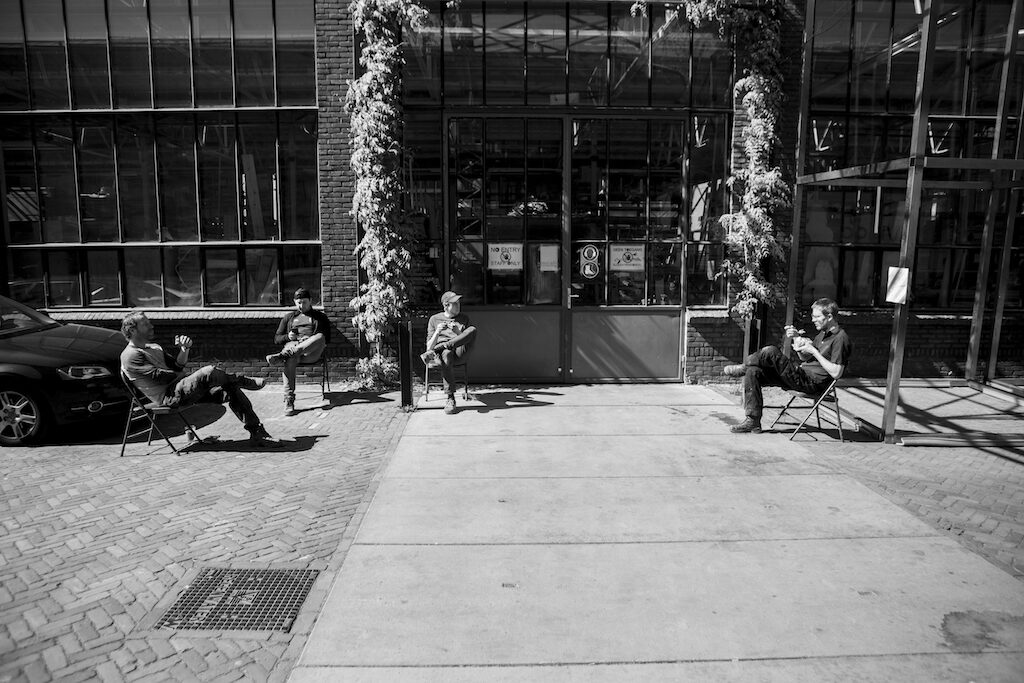
Following the press conference on the evening of Sunday 15 March, I messaged Joost and we came to the conclusion that we would not only take our own lunch to work, but that we would also eat in shifts so that people would have as little contact with each other as possible. In no time, we had adjusted our opinion.
Mavaleix
Right at the last minute, my daughters Lieve, Roos and Geertje came up with the idea that, if quarantine measures were going to be imposed, it would be much nicer if we were surrounded by nature in our holiday homes in Mavaleix. I, as probably the only adult, agreed that this was a good and sensible idea, if only because it turned it all into an adventure. Is it still possible to do the groceries and can you even cross the border and travel at all?
Lieve organised a car and crossed the French border with three friends on the Sunday evening. Roos and Geertje’s plans fell through because their friends with a car were not allowed to go at the last minute. They did want to go later, but it was really forbidden then, and they thought it would be a bit too naughty to try anyway.
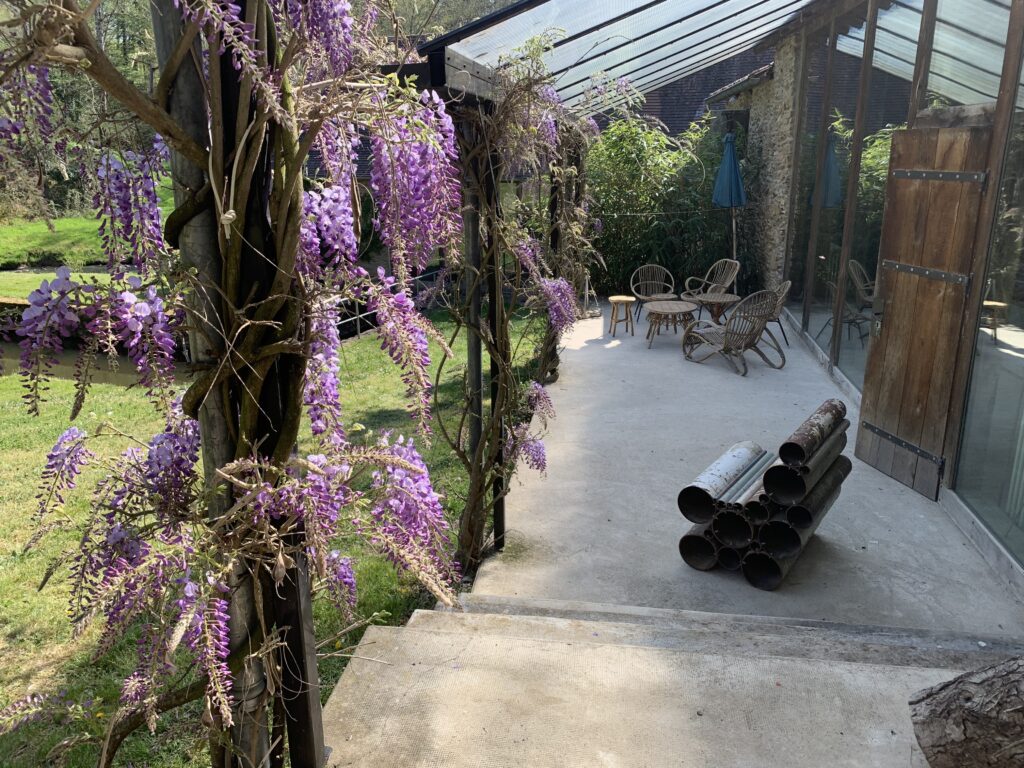
In no time, Lieve and her friends had used up the very limited internet bundle we had had installed with great effort in the woods, and so went to work for Kees at the Chateau. The young ladies were all very busy working and realising their dreams, so had very little time to cook. Lieve has discovered that she, just like us, loves to cook. Eating, reading, sleeping, walking, enjoying nature and in my case doing odd jobs; in short, the main activity in Mavaleix is total relaxation. They are now back home and have experienced four weeks’ less quarantine than us.
Absenteeism
I had a heavy cold that weekend. It was almost gone on the Sunday evening but Stefanie (my girlfriend) would not let me work at the office because it would set a bad example. So, for the first time in my life I succumbed to illness and started working in the ‘Smallest House’, where I live nowadays. This little house is now almost complete and is the ultimate lucky charm. It is built in the old transformer space in the far corner of our building.
We started building it years ago. I devised and designed it as artist in residence as if I would be living there, which is now the case. The corner of the building that now houses the shop used to be filled with three transformer rooms, each 2 by 2 metres and around 7 metres high. We took down the dividing walls and added two concrete storey floors, therefore making a little house measuring 47 metres in total. Despite the fact that it is not yet finished, it is like I am living my dream.
We bought a vacuum cleaner, more like a kind of dust buster, that fits into the kitchen cupboard. Vacuuming is as I expected, just as Stefanie thought that vacuuming is vacuuming in a small house, even with a dust buster. Buying something is new for me because I hardly every buy anything new and this is the first time I have bought a vacuum cleaner in my life.
Anyway, I was able to spend a day enjoying working in my smallest house in quarantine. I had probably caught my cold from Ilonka, Nard or Harm who had all had a cold or the flu in the preceding weeks. Harm felt really bad and was even short of breath. He stayed at home for two days, which is something that has never happened before. He felt he was better just in time to get back to work. Still a bit snotty, but no longer contagious so he could return to work. We are lucky enough to work in a spacious building, so it is not difficult to keep at a safe distance.
Some employees found Harm, and the idea of all working together, a bit scary and difficult, but in the weeks after the measures were introduced, absenteeism, even in the workshop, dropped to zero at some points and we probably experienced the lowest ever sick leave figures. With thanks to the measures and presumably the realisation that working is actually a blessing! Perhaps the main reason for such low absenteeism is that we are no longer allowed to party. In fact, I should compare the Monday absenteeism figures before the measures took effect and afterwards.
Consequences
So, we have low absenteeism figures but the closure of the restaurant, hardly any customers in the shop and fewer orders mean that we also have much less work. Luckily, we have a well-filled order book which will reduce in size due to fewer sales. The good news is that delivery times will also reduce.
The government has also reacted quickly, is as much as a government can be quick. Salaries will be compensated in relation to our loss in turnover as a company. The way in which this is calculated seems, by chance, to be to our advantage. Pretty unfair, if you consider that things are perhaps the other way around for other companies, although in our case it is because the results have been poor in recent years and we are currently in a period in which we have started working more efficiently with fewer people, without necessarily maintaining turnover.
The measures therefore seem relatively advantageous and also mean that our bank may now suddenly suspend repayment obligations. If all goes well, the world will get back to some kind of normal if Dutch Design Week starts in October and we will begin our traditionally strong quarter. I sometimes joke that we will get through it thanks to the corona crisis. In any case, our financial troubles are not much worse than they were already; we are entering the crisis well prepared! But prepared or not, if the measures are not adjusted, it does not seem to me that we can make it without drastic changes!
Takeaway / restaurant
During the last DDW we opened our chip shop at the side of the restaurant. Of course, it got off to a flying start because there are just so many visitors during DDW. The turnover afterwards was a little less than expected, but still slowly growing.
Due to continued business in the restaurant, the plans we had to offer some really tasty meals with chips, never really got off the ground. But the takeaway is now the centre of attention and is going very well! The chip shop has been given a boost that will probably result in a structurally higher turnover. But even better and more important is that everyone now wants to turn it into a chip shop-restaurant and that we will be serving moules (mussels)-friet, hamburger-friet, sole-friet, steak-friet etc., etc. Proper chip meals.
When the restaurant opens again, I am hearing from all sides that it will probably initially only be allowed if we observe the 1.5-metre distance regulation. Luckily, despite the fact that almost everyone seems to be taking it seriously, people are not being too strict about the 1.5 metres. In the supermarket, for example, where it is impossible to keep such a distance, there is no enforcement. They do have a ‘compulsory-to-use-a-trolley-policy’ (or sometimes not) with which they can monitor the maximum number of customers. At the market, where there is much more space and fewer people at the moment, the enforcers are very fanatical in their use of tape. Everyone is doing their best! Should it be the case that we all have to keep 1.5-metres distance from each other even after we are healthy and free of any kind of virus, then we are relatively lucky as our restaurant and terrace are really big and we are used to our guests being able to sit quite far apart.
I assume that the government will stick to its policy and that the goal is that the healthcare system can handle it and that our society should be disrupted as little as possible and that as many people as possible should get corona. This would mean, now that the first wave has passed, that the vulnerable group should be spared, those who are sick should be careful and that we can resume normal life as quickly as possible. From a policy that is necessarily tinged with emotion, back to a functioning society as pragmatically as possible.
I thought, and this might be a little crude, that in terms of statistics, which I love, that you can only die once so if lots of people with a very limited life expectancy die, this would mean that the problem would automatically subside.
Hairdresser container
Govert, a friend of one of our carpenters, came by a while ago. He was keen to rent a space to start his own hairdressers. I liked the guy straight away and we had previously thought about a hairdresser’s salon in our building. All our indoor workshops are currently rented out, and actually too big for what he needed. The workshops we are going to build will not be finished in time and, even if they were smaller than planned, still too big for Govert. As he only really needed a small space, we tried to see if we could make space within the existing layout to create a salon.
All of a sudden, I realised that we have a container outside that is used to store briquettes for heating the building. This storage is hopefully no longer necessary as we have just invested in a new super-luxurious wood gasifier with a built-in bunker into which the briquettes that we press ourselves fall themselves. The container is already standing on legs in our little street opposite the entrance of the shop, at the side entrance to the restaurant. Govert will have his entrance (with steps) at the busiest intersection of our building and his own parking space underneath the salon!
As we have not made any profit in recent years, we were not able to invest, which was a dilemma. We had such a great plan that we were both really keen to realise. It is also a good investment, but there were no resources. Then I remembered Govert mentioning that he had saved up to start his own business, so I asked him if he would be able to pay rent in advance for a certain period. This was fine, as long as the rent remained structurally the same amount.
The most significant hurdle had been overcome so now we had to find the manpower to make the hairdresser’s salon. We cannot miss the hours in production because there is a whole lot of steel work to be done and we are really busy in terms of metalwork. Then I heard that Paul, who has just graduated from the Design Academy and works for lots of designers, suddenly found himself with just one day’s work a week as a result of the corona crisis. I asked him if he would make the salon. The hairdresser’s container will be realised later than Govert had hoped and expected, but in hindsight exactly on time (no one is allowed to go to the hairdresser at the moment anyway).
Happy in the Netherlands
The crisis also means that we now have the time and manpower to paint, to do odd jobs, to renovate, to change and even to build a little. Not everyone is equally skilled, but there is plenty of time to learn. Working to create a nicer and more beautiful place for when we can reopen creates a great atmosphere! Actually, we should also be pleased with Dutch policy in these terms. Our employees whose wages are being compensated are allowed to continue carry out working activities. In our neighbouring countries you must stay home even if you receive benefits (also called benefits there). Apart from the fact that it generates social stress on all kinds of levels if people have to stay at home with each other, you could also call it institutionalised unproductivity.
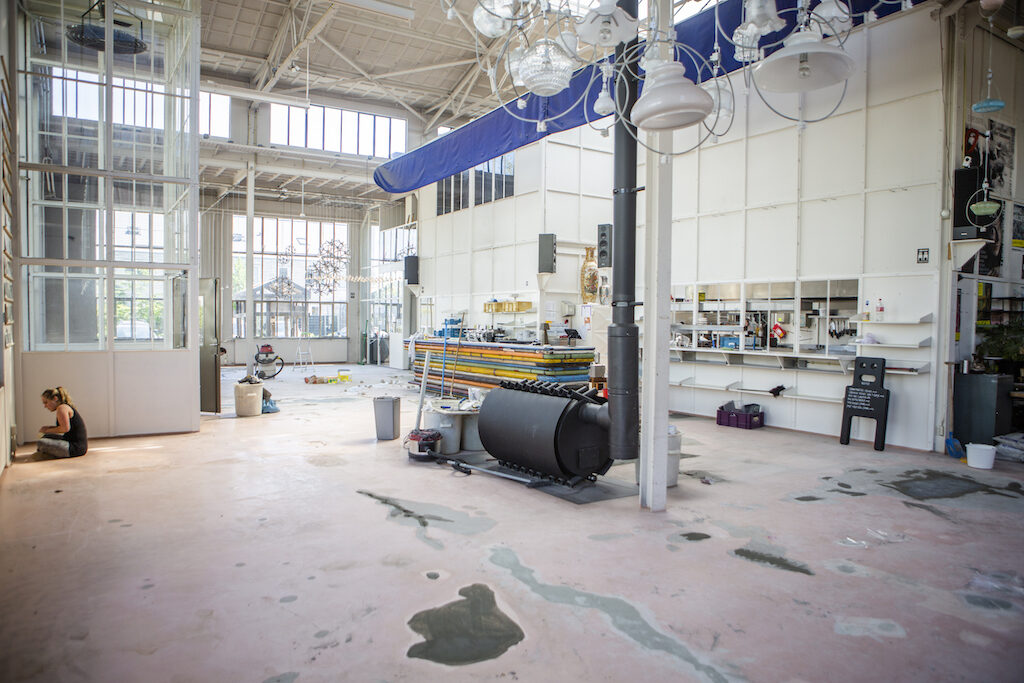
I must confess that I am very critical about the measures taken, so I am very happy that we live in the Netherlands as we have a progressive policy and things aren’t really too bad. I do wonder, apart from the costs entailed, how many extra people will die compared to how many will be saved by the measures. I also wonder whether most people, like me, know people in their direct vicinity who, completely unrelated to corona, have died or are seriously ill. Those around me who have had corona are all bright and healthy again. Not surprising really, by the way, as over thirty thousand people die every year of cancer alone (also young, strong people). But it is outdated to be too rational when there are people dying because they cannot be given sufficient care.
We live in a society that has been free of disaster and calamity since World War II. Generations have grown up thinking that things can only get better and that society is secure. If something goes wrong, it is the fault of the government and they should be the ones to do something about it. In my opinion it is a matter of calculating probabilities; if we all do our best, the likelihood and severity of adversity will be reduced and our combined efforts will make it more bearable. Nevertheless, disaster is inevitable.
I hope that the main conclusion will be widely supported; that we simply cannot assume that we have the power to defy fate, and that we see dying as a part of life and not a result of the failure of the system. And also that we accept that history repeats itself and the more people we are, the greater the risk of fatal war, epidemic or whatever, and so the more of us there are, the greater the chance that we will end up with less. In my opinion nothing has actually changed, except that we will one day have left behind us a rather mild epidemic with far-reaching consequences. I hope we do not suddenly start making ten times more ICUs or to have bought a million ventilators or that we start stockpiling warehouses full of vaccines. I can imagine that the history books will record an economic dip, but not that corona will be listed in line with the plague and the Spanish flu.
Crisis/economic doomsayers
A notable phenomenon around me is that there are quite a few people taking ‘how things are now’ as a starting point for the (foreseeable) future. Very strange, because I think it is pretty clear that we are in the middle of a dip right now and that things can only get better. Even if society continues to change, things can only improve from now on. Incidentally, I believe that everything will be exactly like it was before the crisis in the not too distant future.
In the Netherlands, and I think all of Europe, there is a dominant idea that employees must keep their wages at all times and do not have to contribute to a crisis, unless they become unemployed. The Dutch policy also supports this idea; you will receive support, as long as you do not fire anyone during this period. From a position of solidarity, there is a counterargument to this, especially if you consider that these employees are all sitting at home and not consuming. So, they hoard their salary, insofar as it is not spent online and in the DIY store. This is quite advantageous in economic terms because demand is maintained to a certain extent. If the measures are relaxed or completely removed, a whole lot of highly motivated consumers will hit the streets and enjoy consuming once again. Then, whatever is not being spent now will be easily thrown around.
This is in complete contrast to the last credit crisis, when the banks in America and Europe raised the interest rates several times and mortgage rates suddenly rose sharply. For some this meant that instead of half their salary, their entire salary was needed to cover mortgage repayments. In America you can just give the house to the bank, which happened in huge numbers. The problem then becomes the bank’s problem and no longer that of the consumer.
Instead of drawing the conclusion that mortgages are an essential basic requirement and that interest rates must therefore not increase too sharply, the debt was the mortgagee’s problem. From then on, they were allowed to borrow less. Mortgage regulations in the Netherlands were also tightened. Instead of being able to borrow 10% extra to invest in a kitchen, for example, you can only get financing for 90% and have to save 10% yourself. As a much higher proportion of your salary must be spent on rent, people can just about pay their rent but have nothing left to save and will therefore never be able to but their own house.
As well as this being hugely unfair, this has also had a significant influence on the economy. A huge amount of money has been withdrawn from the market. Actually, I understand just as little about this as the economists (who are also rarely right) but I think it makes no sense to compare the banking crisis with the corona crisis. I now realise that the banking crisis in Europe actually was not so bad in the end! For us it was a special time, when we bought our premises and started the adventure of our building which we are still enjoying!
The hotel and more
We have another project and advantage: ‘the hotel’. We want to welcome our first guests no later than October. Since we arranged the financing for the hotel a while ago when things were better, we can now invest in the future, even though the world seem to be collapsing around us. This is perhaps what I am most aware of at the moment and what makes me happy every day; we are actually always making beautiful things.
For ourselves, in the middle of the corona crisis, we are currently working on the smallest house, a hairdresser’s container and the hotel. In the workshop we are working on a new shop in Heemstede for Bakker van Vessem, we are making large cultural showcases together with the Van Abbemuseum and Eindhoven Airport to please travellers who will hopefully soon be passing through once again, an old oak tile cabinet for the Frozen Fountain, a series of special edition single-mould lamps and much more. A varied production process such as we have, where craftsmanship is central and a lot is asked of our employees, is very vulnerable due to the capricious nature of humans. On the other hand, making and completing something is a very rewarding process.
Bakery shop Van Vessem, Heemstede
Showcases Eindhoven Airport
Old oak dresser

Special edition one mold lamp
Birch trunk twinset cabinets
This post is also available in: NL
« Back to blog